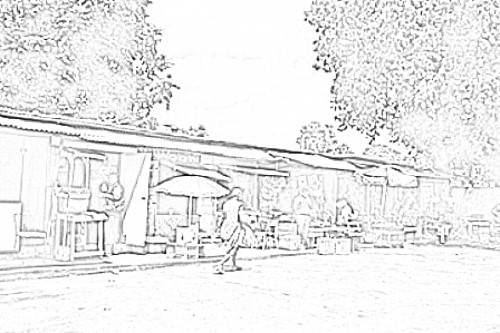By Kent Gammon
Op-Ed Contributor
There is far too much of a large proportion of youth in Jamaica that is being reared destructively.
At midday on any day of the working week one only need to go to Portia Simpson Miller Square (there are other public thoroughfares I could list of course, such as in front of the Canadian Embassy on Waterloo Road, but the public thoroughfare bearing the PM’s name will do) and witness the goings on of youth destruction.
Youth, whose ages range from under 10 and upwards to teenagers, partake in the hustling of windscreen wiping, selling of various confectionery and outright begging.
Need I mention the police personnel, who drive by these begging and hustling children as if it were totally normal.
Reversing the decline
A major reason why Jamaican society is in such rapid decline is because our laws are not properly enforced, if at all. The Child Care and Protection Act is replete with law to protect children from abuse and, more significantly, law to hold parents and guardians responsible for their care and schooling – see Sections 27 and 28 of said Act.
I would much prefer if we had a society that was far more morally responsible and all these children I see daily all over the place hustling and begging were constructively occupied as opposed to having to rely on the force (at least in theory) of law.
If we are to have a fair and productive society we must have the proper functioning of the rule of law — that means all laws apply equally to all persons, and, of course, buttressed by wholesome family values.
Jamaica’s youth need a new diet
This widespread belief in Jamaica that beating children is a necessary form of discipline adds to the destructive nature of child rearing. Jamaica has the worst levels among Latin America and Caribbean countries of violent discipline, physical punishment and where mothers and caregivers think that children need to be physically punished, according to the UNICEF Programme for Children Report Card September 2009.
The high levels of violence in our country will not abate if Jamaican society continues to have this resolute belief in corporal punishment.
We must understand that the best form of discipline is that which rewards good behaviour. The daily diet of verbal and physical abuse, particularly in the inner city communities, is making our children into callous human beings leading to a life of perpetual violence.
The state must do more in social engineering and these are some immediately proposed measures:
(i)Colleges for young (particularly teenage) mothers – the teaching of young mothers on what is involved financially and emotionally in taking care of infants is important in shaping responsible mothers.
(ii)Both parents’ names must be jointly stated on birth certificates. Where the mother is unable to provide the same, she should be sentenced to community service (with the following exemptions: when a mother can prove domestic violence or abuse; when a child is born as a result of rape or artificial insemination) and where she is unable to adequately care for a child, the state should place that child in a foster home.
(iii)More family planning programmes to educate the youth on their responsibilities as parents.
(iv)More deployment of resources in children homes to expand existing facilities to accommodate the growing number of children in dire need of care and protection.
(v)The re-introduction of civics as a separate core subject at the secondary level grades 1-3. This was a commitment of former Prime Minister Hon. Andrew Holness and is proposed to be reintroduced in September 2012. I do hope the current Education Minister will make this a reality.
It is a future of blight if the right environment is not created and maintained for the wholesome upbringing of the nation’s children.
We cannot afford the costs of irresponsible parenting.
Kent Gammon is a former candidate for the Jamaica Labour Party and an Attorney-at-law.
Note: the opinions expressed in Caribbean Journal op-eds are those of the author and do not necessarily reflect the views of the Caribbean Journal.
